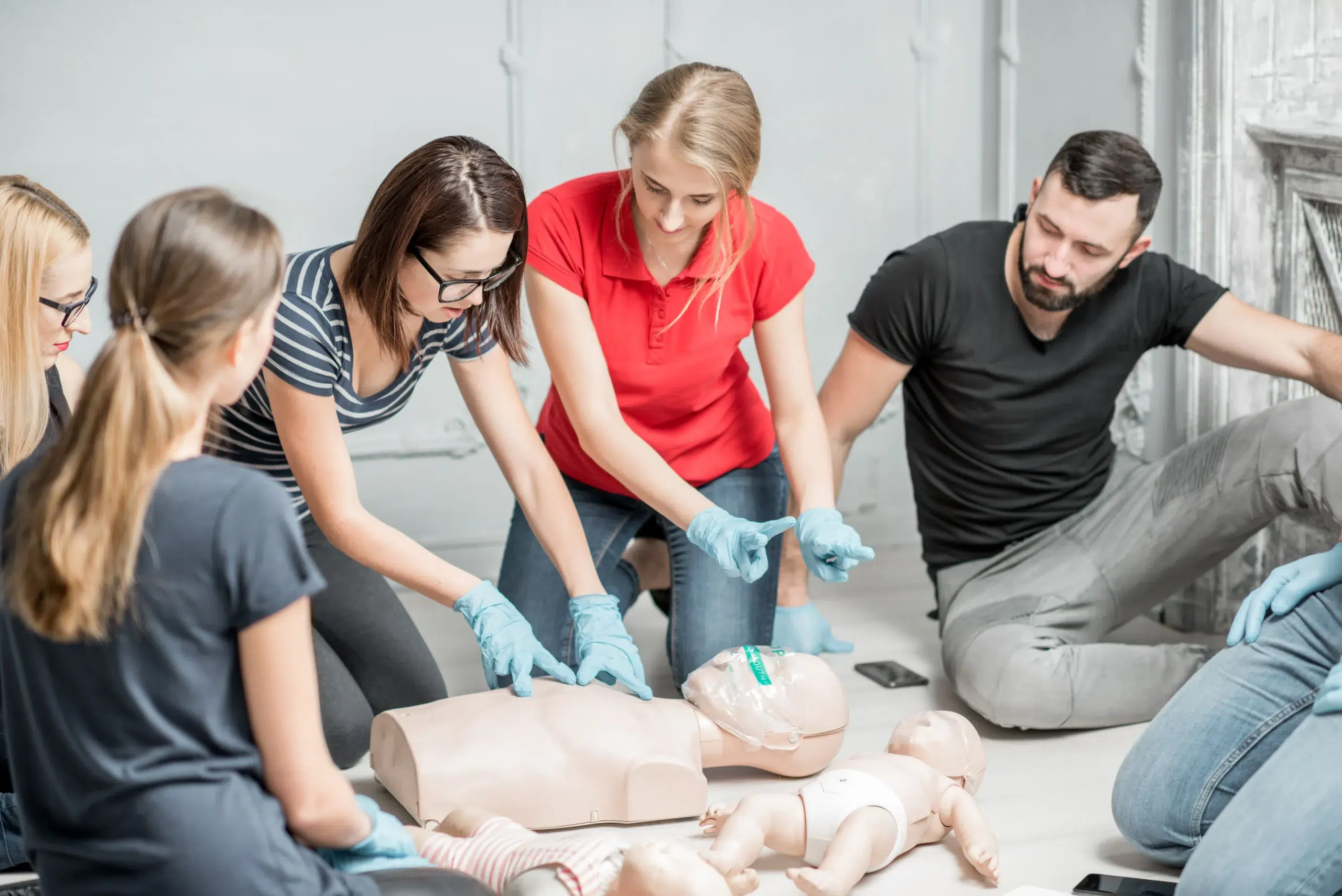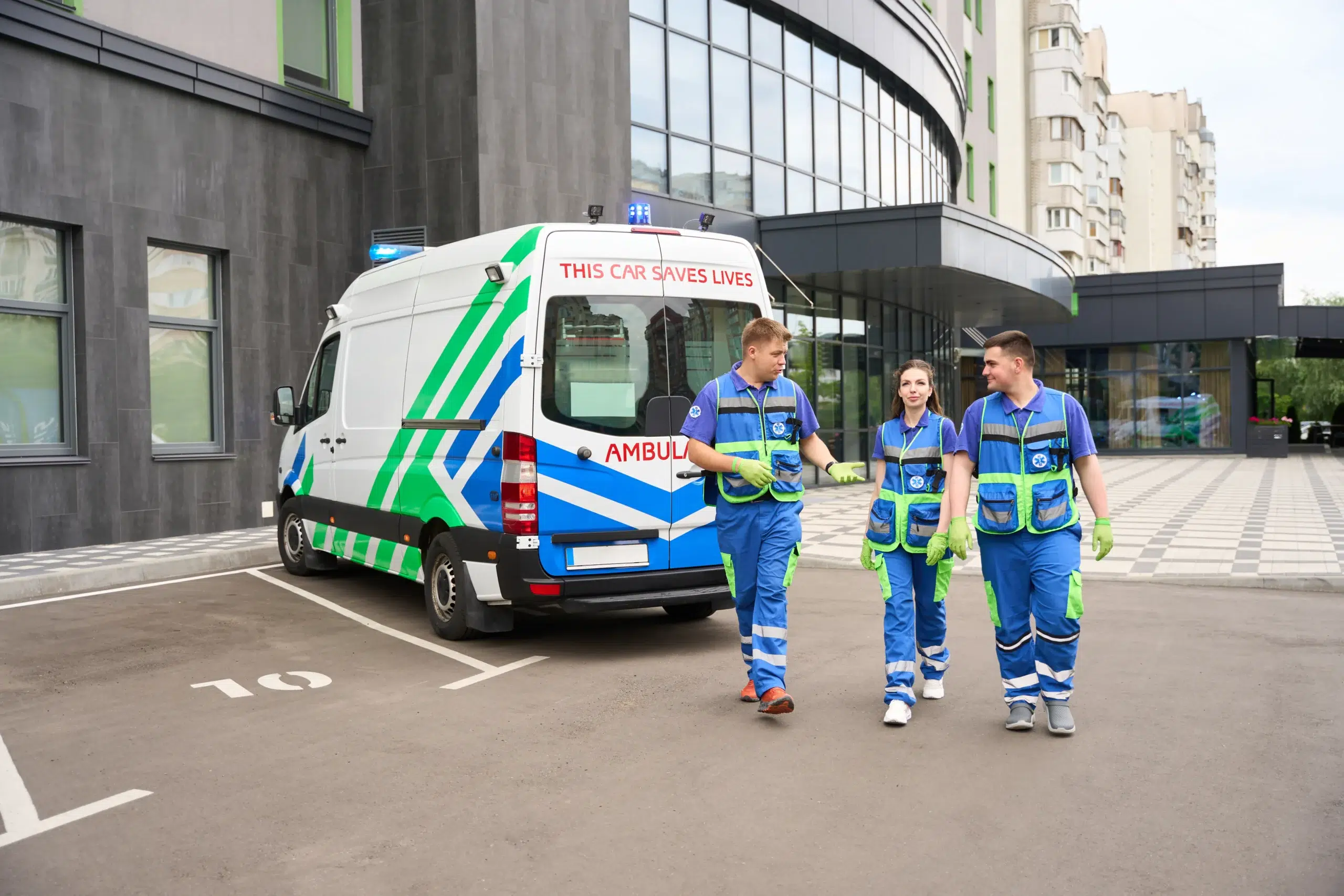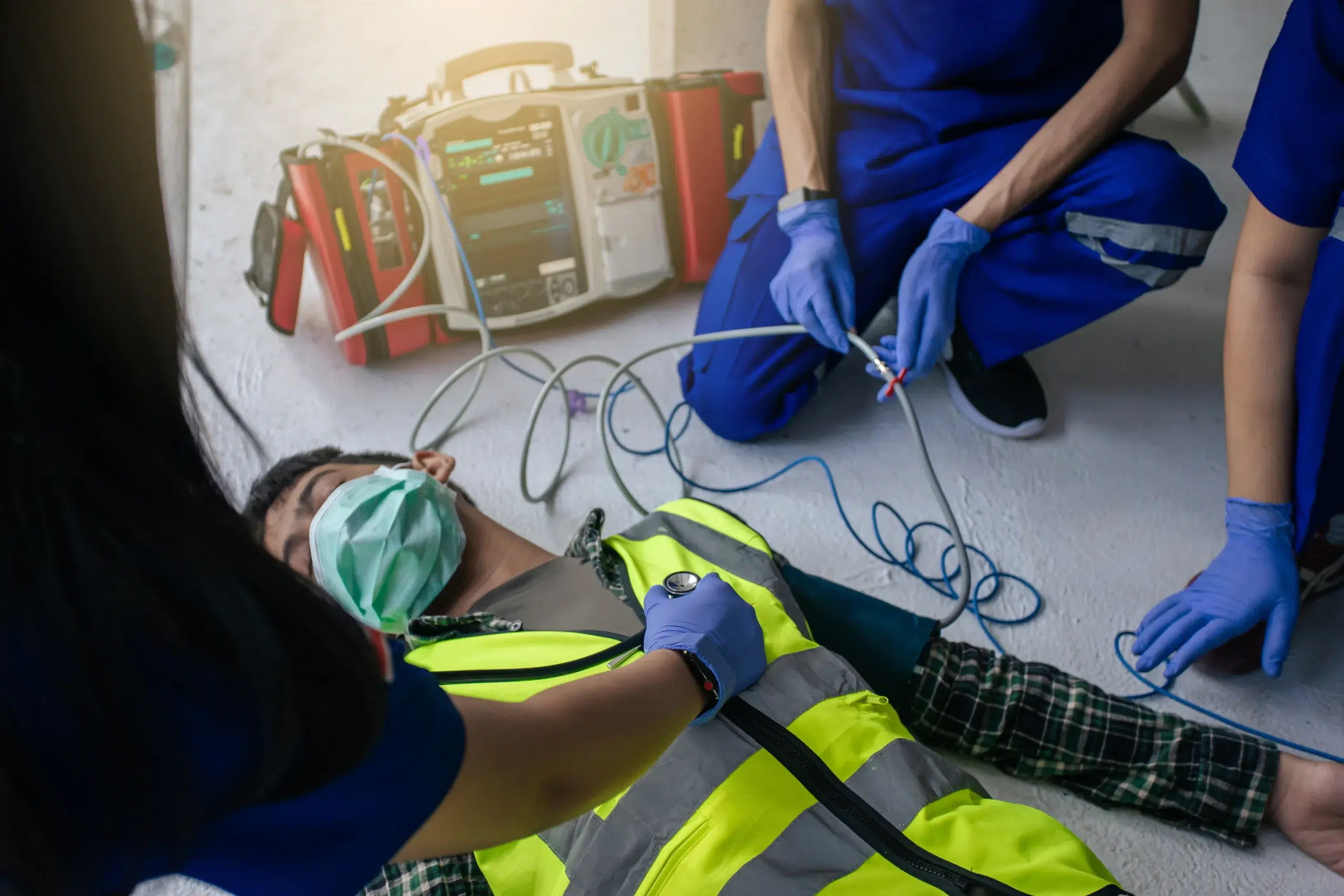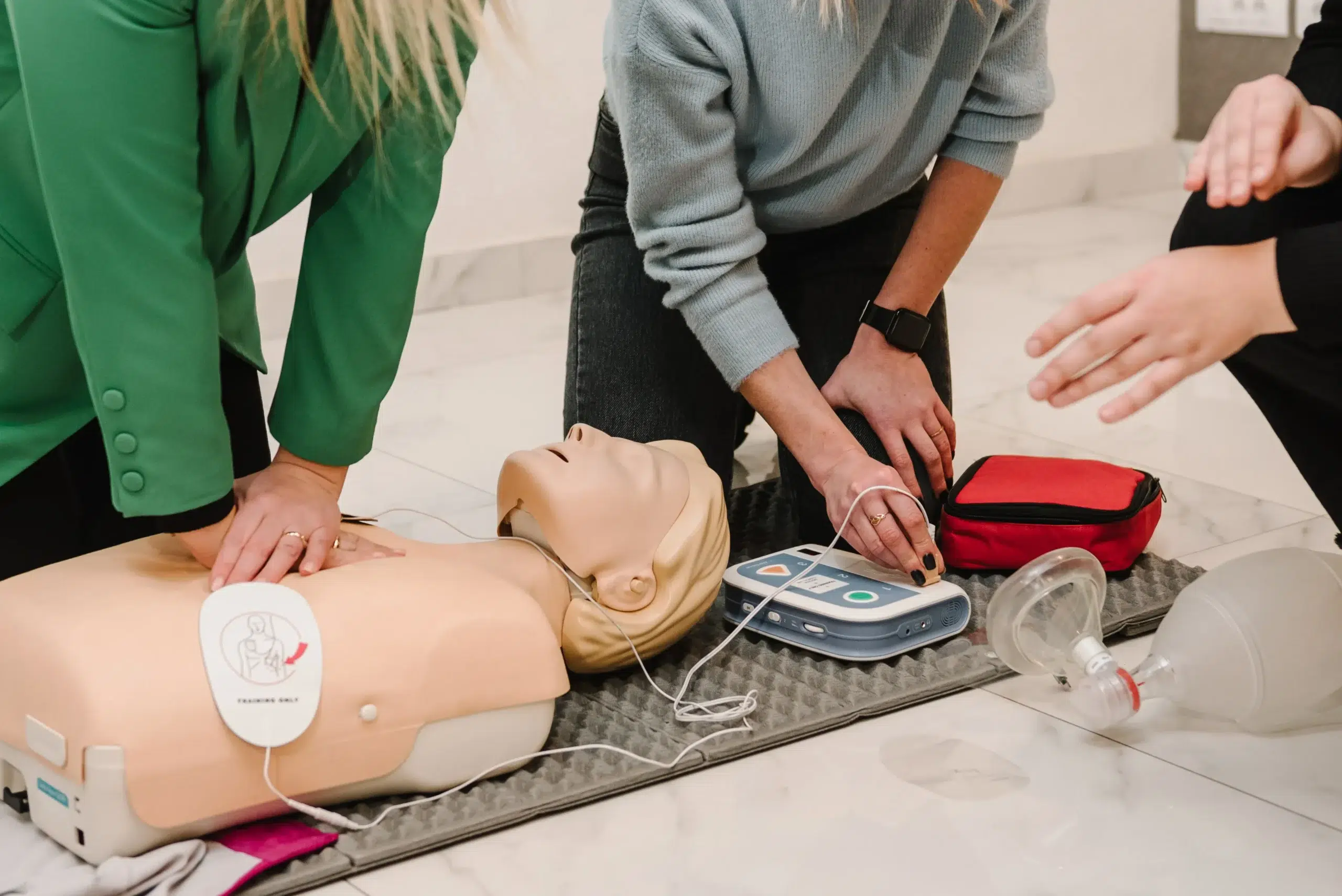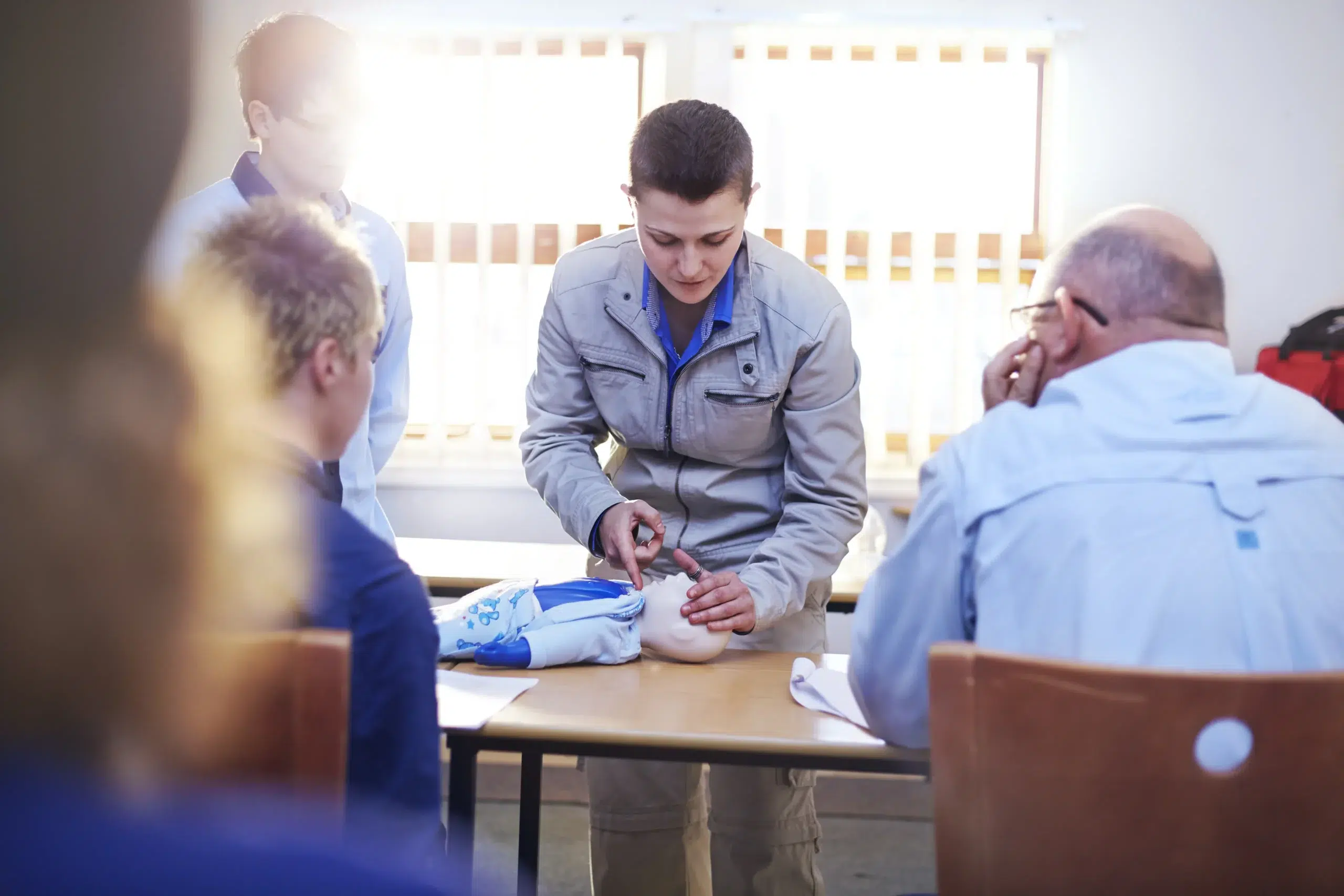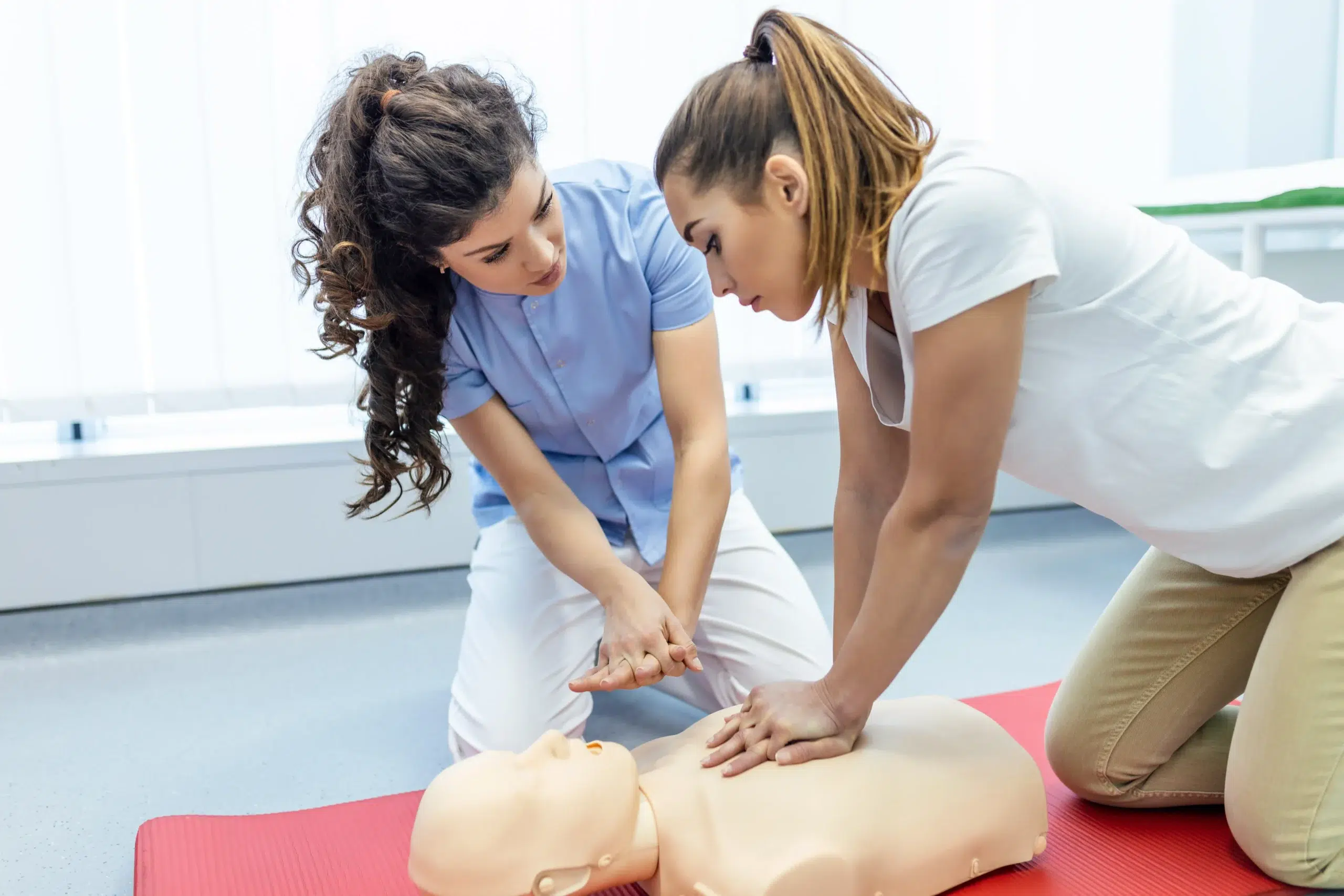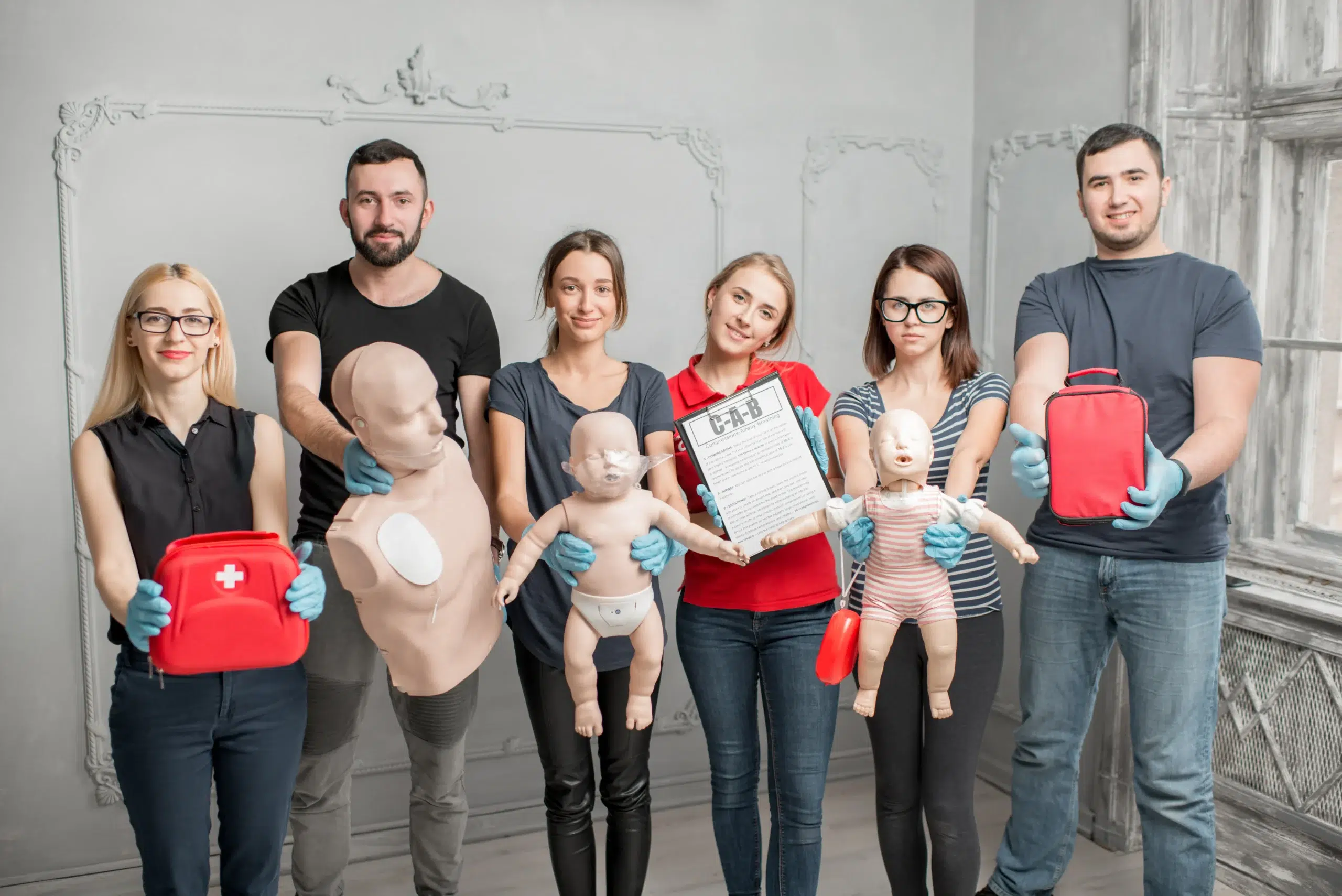Emergencies can happen anytime, anywhere. Would you know what to do if someone near you experienced a sudden cardiac arrest? CPR training in Pleasant Hill provides the skills and confidence to respond effectively in such critical situations. This guide explores the various CPR courses available in Pleasant Hill, including BLS, ACLS, and PALS certification. We’ll also discuss the importance of choosing a qualified training provider and the benefits of local CPR training. Empower yourself with the knowledge to make a real difference in someone’s life.
Key Takeaways
- CPR skills empower you to save lives: Whether you’re a healthcare professional or a concerned citizen, learning CPR and first aid provides you with the ability to respond effectively in emergencies.
- Find the right CPR training in Pleasant Hill: Explore the various courses and providers available in your area, considering factors like instructor qualifications, scheduling, and pricing to make an informed decision.
- Local CPR training offers a supportive learning experience: Benefit from hands-on practice, personalized feedback, and convenient access to high-quality instruction that aligns with the latest guidelines.
What is CPR Training in Pleasant Hill?
What is CPR and Why Does It Matter?
CPR stands for cardiopulmonary resuscitation. It’s a lifesaving technique used when someone’s breathing or heartbeat has stopped, such as during a heart attack or near-drowning experience. Effective CPR can double or even triple a person’s chances of survival. Learning CPR empowers you to respond confidently in such critical situations, potentially making all the difference. Think of it as a vital skill that can help you protect your loved ones and community members.
Available CPR Courses
Pleasant Hill offers a variety of CPR courses to meet different needs. Whether you’re a healthcare professional, a childcare provider, or simply someone who wants to be prepared for an emergency, you can find the right training. The CPR Training Center in Pleasant Hill offers courses in CPR and advanced life support, including ACLS, PALS, BLS, and NRP. These courses are designed for both healthcare providers and community groups. CPR Education also provides CPR and First Aid training in Pleasant Hill, with options for group and individual instruction. For those seeking American Heart Association-aligned training, Pleasant Hill CPR Classes offers a range of courses including BLS, ACLS, and PALS.
American Heart Association Certification
When you choose a CPR course in Pleasant Hill, look for American Heart Association (AHA) certification. The AHA sets the standard for CPR training, ensuring high-quality instruction and up-to-date techniques. AHA-authorized training centers follow the latest AHA guidelines. This means your certification will be recognized and respected nationwide. Earning AHA certification demonstrates your commitment to providing effective CPR and gives you the confidence to act quickly and skillfully in an emergency.
Find the Right CPR Training
Finding the right CPR training depends on your needs and career goals. Pleasant Hill offers various courses, from basic life support to advanced certifications. Let’s explore the most common types of
BLS Courses
Basic Life Support (BLS) certification provides foundational CPR skills for adults, children, and infants, including AED use and relieving choking. BLS certification is often a prerequisite for other advanced life support courses and is essential for many healthcare jobs. Pleasant Hill CPR Classes is an American Heart Association-authorized training center with almost three decades of experience, offering BLS training tailored to healthcare professionals and groups.
ACLS Training
Advanced Cardiovascular Life Support (ACLS) training expands on the skills learned in BLS. These courses prepare healthcare providers to manage cardiovascular emergencies, such as cardiac arrest and strokes. ACLS certification teaches advanced techniques like ECG interpretation, airway management, and pharmacological interventions. Doctors, nurses, and paramedics often require ACLS certification.
PALS Certification
Pediatric Advanced Life Support (PALS) certification addresses the specific needs of infants and children in life-threatening situations. This course equips healthcare providers with the skills to assess and treat critically ill pediatric patients, covering topics like respiratory distress, shock, and cardiac emergencies in children. PALS certification is vital for anyone working with young patients.
First Aid + CPR Classes
Combining First Aid and CPR training creates a comprehensive skill set for handling various emergencies. First Aid courses teach you to manage injuries, illnesses, and environmental emergencies, from minor cuts and burns to allergic reactions. Adding CPR training allows you to respond effectively to life-threatening situations. These combined courses benefit everyone, from parents and teachers to workplace safety officers and community members.
Choosing a CPR Training Provider
Finding the right CPR training provider is crucial for a positive and effective learning experience. Here’s what to consider:
Qualified Instructors
First and foremost, confirm the instructors’ qualifications. Are they certified by a reputable organization like the American Heart Association? A qualified instructor ensures you receive accurate information and proper training techniques. Pleasant Hill CPR Classes boasts a team of highly experienced, AHA-certified instructors committed to providing high-quality instruction. This commitment to excellence ensures your training meets the highest standards.
Flexible Course Schedules
Balancing work, family, and other commitments can make scheduling difficult. Look for a provider that offers various class times and formats to fit your busy schedule. Pleasant Hill CPR Classes offers convenient daily certification courses, including weekend options, to accommodate diverse schedules.
Pricing & Discounts
CPR training shouldn’t break the bank. Compare pricing from different providers and inquire about discounts. Pleasant Hill CPR Classes offers a low price guarantee and frequently has special promotions for group bookings, making it an affordable option for individuals and organizations.
Local Providers
Choosing a local provider offers several advantages, including convenience and community connection. Here are a few options in the Pleasant Hill area:
Pleasant Hill CPR Classes
Pleasant Hill CPR Classes specializes in a wide range of AHA-certified courses, from basic CPR and First Aid to advanced certifications like ACLS and PALS. They also offer specialized RQI programs for healthcare professionals. Serving Pleasant Hill, Walnut Creek, and Concord, they are a convenient choice for local residents. Contact them to learn more about their offerings.
CPR Training Center
The CPR Training Center is another option in Pleasant Hill, offering various CPR and advanced life support courses. Their long-standing authorization by the American Heart Association demonstrates their commitment to quality training.
CPR Education
CPR Education, led by an AHA-certified instructor, provides CPR and First Aid training in Pleasant Hill. They focus on high-quality training and personalized instruction, catering to both individual and group needs.
Benefits of Local CPR Training
Choosing a local CPR training provider offers distinct advantages. Here’s why learning CPR in your community matters:
Hands-on Practice & Feedback
CPR training isn’t just about learning the steps; it’s about developing the muscle memory and confidence to perform them effectively in a real emergency. Local classes, like those offered at Pleasant Hill CPR Classes, provide crucial hands-on practice using CPR training mannequins. This tactile experience lets you learn the correct hand placement and depth of compressions, essential for providing effective aid. Instructors can offer immediate, personalized feedback, correcting your technique and addressing any questions in real-time. This direct interaction solidifies your understanding and builds confidence.
Convenient Access
Juggling work, family, and other commitments makes finding time for training a challenge. Local CPR providers understand this and offer flexible scheduling. The CPR Training Center in Pleasant Hill, for example, has provided training in the area for nearly three decades, offering various class times and even on-site training for groups. This local access eliminates the need for extensive travel, saving you valuable time.
Up-to-Date Guidelines
Medical best practices are constantly evolving. Local CPR training centers prioritize staying current with the latest American Heart Association guidelines. They ensure their instructors and curriculum are updated to reflect the most effective techniques. This commitment to current practices means you’ll learn the most up-to-date methods.
Community Focus
Learning in a familiar environment can make all the difference. Local CPR classes create a sense of community, connecting you with people who live and work in your area. This shared experience fosters a supportive learning environment, making you feel more comfortable asking questions and practicing your skills.
Networking
Local CPR training can also offer networking opportunities. Group classes, especially those designed for businesses, allow you to connect with other professionals in your community. CPR Education highlights the benefits of these connections, noting that businesses can often secure special group rates for training. Building a network of trained individuals within your workplace or community creates a safety net, increasing the likelihood that someone nearby will be equipped to respond effectively in an emergency.
Get CPR Certified
Choose the Right Course
Pleasant Hill CPR Classes offers a range of courses, from basic CPR and first aid to advanced certifications like ACLS and PALS. We also offer specialized programs like RQI, designed for healthcare professionals. Consider your specific needs and choose the course that best aligns with your goals. Whether you’re a healthcare provider, a childcare worker, or someone who wants to be prepared, we have a course for you.
Book Your Training
Ready to get started? Visit our website to view our course schedule and register. We offer convenient daily classes to accommodate busy schedules. For questions or help with booking, contact us directly. We’re happy to help you find the right class.
What to Expect in Class
Our CPR classes are hands-on and engaging. You’ll learn essential CPR skills, including chest compressions and rescue breaths, using training manikins. Our instructors will guide you through each step, providing personalized feedback. We keep our class sizes small to maximize individual attention and create a comfortable learning environment.
Certification & Renewal
After completing your course, you’ll receive a certification valid for two years. We also offer recertification courses to help you maintain your skills and stay current with the latest guidelines. Your certification shows your commitment to providing high-quality care in emergencies.
CPR Mythbusters
Many misconceptions exist about CPR. One myth is that CPR alone can restart a stopped heart. While CPR is a crucial life-saving technique, its primary purpose is to maintain blood flow and oxygen to the brain until professional medical help arrives. Another myth is that CPR should continue until the person is revived. Current guidelines emphasize consistent, high-quality compressions. Our classes address these and other myths, providing accurate information and empowering you to act confidently in an emergency. We encourage you to ask questions and clarify any uncertainties you have about CPR.
Related Articles
- Why CPR is Vital for Healthcare and Public Safety
- American Heart Association (AHA) Training in Concord, CA
- Online CPR Classes in Concord: Your Guide – Pleasant Hill CPR Classes
- ACLS Courses in Concord: Your Complete Guide – Pleasant Hill CPR Classes
- CPR Certification in Pleasant Hill: A Complete Guide
Frequently Asked Questions
What’s the difference between BLS and ACLS?
BLS (Basic Life Support) teaches fundamental CPR skills for everyone, including CPR for adults, children, and infants, using an AED, and relieving choking. ACLS (Advanced Cardiovascular Life Support) builds upon BLS, focusing on more advanced techniques for healthcare professionals to manage serious cardiovascular emergencies like heart attacks and strokes. Think of BLS as the foundation and ACLS as specialized training for medical personnel.
How do I choose the right CPR class for me in Pleasant Hill?
Consider your current role and future goals. If you’re a healthcare provider, BLS is usually a minimum requirement, and ACLS or PALS might be necessary depending on your specialty. For childcare providers, teachers, or general community members, a combined CPR and First Aid course is a great option. If you’re unsure, reach out to a local training provider like Pleasant Hill CPR Classes; they can guide you.
Why is American Heart Association certification important?
The AHA sets the gold standard for CPR training, ensuring you learn the most up-to-date and effective techniques. AHA certification is widely recognized and often required for healthcare jobs and other professions. It also signals your commitment to high-quality CPR skills.
What should I look for in a CPR training provider?
Definitely check that instructors are AHA-certified and experienced. Look for a provider offering flexible schedules, competitive pricing, and convenient locations. Hands-on practice and personalized feedback are also essential for effective learning. Reading reviews and asking for recommendations can help you find a reputable provider.
How often do I need to renew my CPR certification?
CPR guidelines and best practices are updated regularly, so renewing your certification every two years is standard. This ensures your skills remain sharp and aligned with the latest recommendations. Many providers offer refresher courses to make recertification straightforward.
